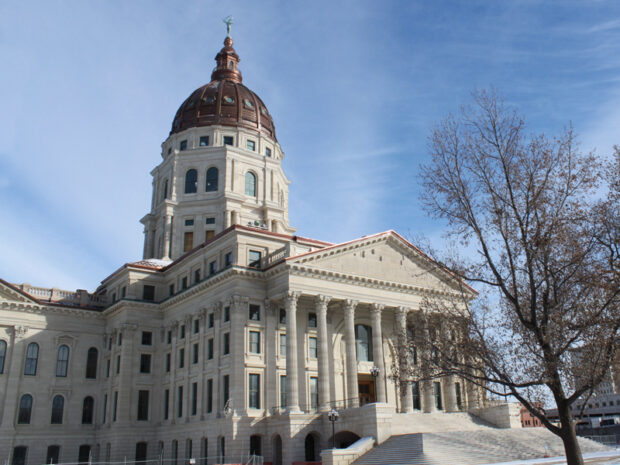HOME | ABOUT US | MEDIA KIT | CONTACT US | INQUIRE
HOME | ABOUT US | MEDIA KIT | CONTACT US | INQUIRE
Posted March 4, 2024

Kansas Department of Commerce attorney, Bob North told Kansas lawmakers Thursday his department is in several talks to bring more electric and hydrogen-powered vehicle manufacturers under a new house bill.
Updated 12:53 p.m., March 4, 2024
A Kansas Department of Commerce official believes the state is poised to take on more electric vehicle manufacturing investments a year after a bill passed to establish the Transformation of Passenger and Freight Vehicle Industry Act.
House Bill 2471, introduced in April 2023, offers tax credits, sales tax exemption for construction projects and an employee training and education fund. The bill is designed to attract more manufacturing agreements to Kansas following the $4 billion Panasonic electric vehicle factory in De Soto, Kansas.
For a company to qualify for the bill’s tax incentives, companies are required to make an investment of at least $250 million for an electric or hydrogen motor vehicle facility and hire a minimum of 250 new employees within five years from the date specified in the agreement.
There is no limit on the number of companies that can enter agreements with the state. The Transformation of Passenger and Freight Vehicle Industry Act program will expire in 2026.
During a committee hearing on Thursday, general counsel for the Kansas Department of Commerce, Bob North told lawmakers the state was “poised” to take advantage of a coming onslaught of investment in electric vehicles, The Kansas Reflector reported Friday.
North told lawmakers that Kansas development officials were actively in discussions with several potential projects, however, North did not specify the names and how many companies were involved in the discussions.
Several lawmakers on the commerce committee expressed concerns with the new tax incentive program, according to The Reflector. Committee members cited the differences between this new program and the Attracting Powerful Economic Expansion Act (APEX) that helped establish the Panasonic factory.
Under APEX, which expired in 2023, Panasonic was offered $829.2 million in incentives and is expected to hire 4,000 new employees in the area.
The minimum tax incentives a company can receive under the new bill is $35 million, provided the company provides the minimum requirements of $250 million and 250 new hires. If the company fails to meet the minimum requirements, incentives can be rolled back.